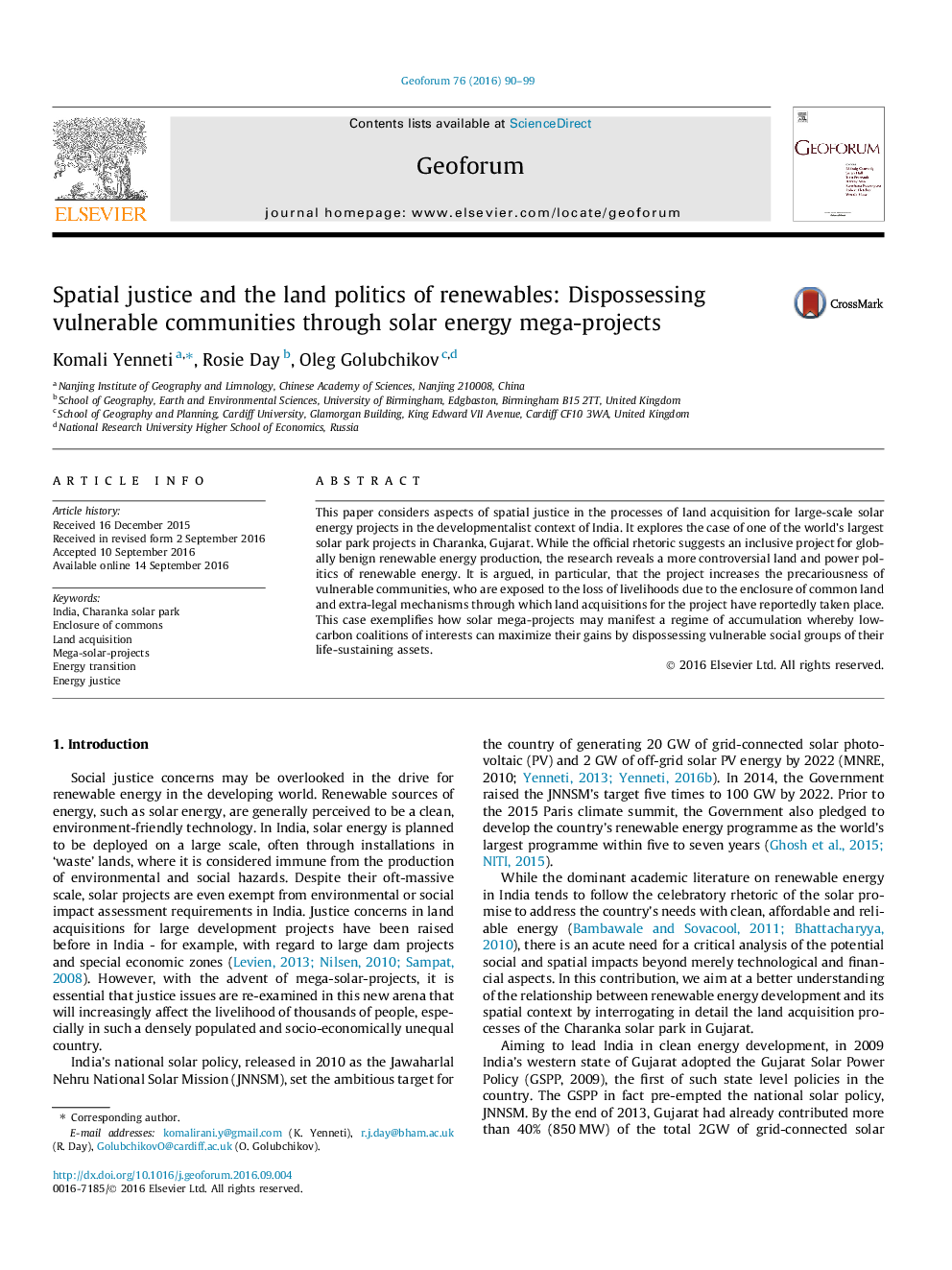| Article ID | Journal | Published Year | Pages | File Type |
|---|---|---|---|---|
| 5073471 | Geoforum | 2016 | 10 Pages |
This paper considers aspects of spatial justice in the processes of land acquisition for large-scale solar energy projects in the developmentalist context of India. It explores the case of one of the world's largest solar park projects in Charanka, Gujarat. While the official rhetoric suggests an inclusive project for globally benign renewable energy production, the research reveals a more controversial land and power politics of renewable energy. It is argued, in particular, that the project increases the precariousness of vulnerable communities, who are exposed to the loss of livelihoods due to the enclosure of common land and extra-legal mechanisms through which land acquisitions for the project have reportedly taken place. This case exemplifies how solar mega-projects may manifest a regime of accumulation whereby low-carbon coalitions of interests can maximize their gains by dispossessing vulnerable social groups of their life-sustaining assets.
